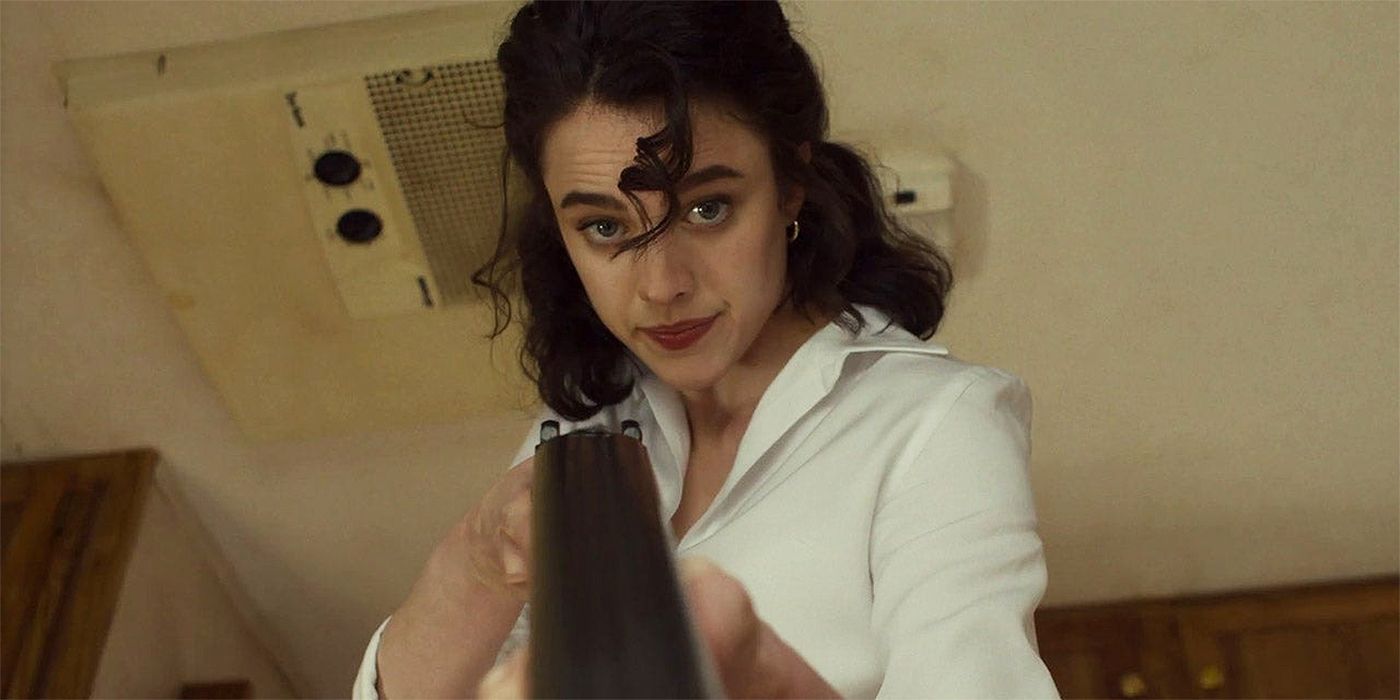After the writing and directing duo behind hits like “Fargo,” “The Big Lebowski,” “No Country for Old Men,” and “Inside Llewyn Davis” split in 2020, the Coen Brothers each began directing projects that fit their own specific interests. Ethan Coen and his wife Tricia Cooke (“Drive Away Dolls”) began writing and directing a trilogy of “lesbian B-movies” meant to be of a far less serious tone than his previous works. That first film, “Drive Away Dolls” had a fairly muted reception in 2024, and now the second film in that disconnected trilogy is here with “Honey Don’t.”
The film follows private investigator Honey O'Donahue, played by Margaret Qualley (“The Substance,” “Maid”), who finds herself stumbling into the mysterious death of a potential client. This death leads her to a mystery involving many faces around town, including Drew Devlin, a pastor and leader of a local religious cult played by Chris Evans (“Captain America: The First Avenger,” “Knives Out”), MG Falcone, a police officer played by Aubrey Plaza (“Parks and Recreation,” “Agatha All Along”), O’Donahue’s sister Heidi played by Kristen Connolly (“The Cabin in the Woods,” “Zoo”), her niece Corinne played by Talia Ryder (“Never Rarely Sometimes Always,” “Do Revenge”), and police detective Marty Metakawich played by Charlie Day (“It’s Always Sunny in Philadelphia,” “The Super Maro Bros. Movie”).
From the start, it's clear that Coen wants to leave his more outlandish sensibilities behind and make a film that represents a more serious vision of the classic “Noir” genre films he and his brother love. There’s still plenty of off-kilter humor here, and plenty of queerness as well. However, by stripping out the almost cartoonish sense of reality that his previous works, and particularly “Drive Away Dolls” had, what remains is an amateurish imitation of these detective driven noir films from the past. There’s a handful of great camera angles from cinematographer Ari Wegner (“The Power of the Dog,” “Zola”) and Carter Burwell’s (“The Banshees of Inisherin,” “Anomalisa”) musical score captures the noir vibes well, but they both simply slot into their genre rolls without ever standing on their own. It certainly feels like a professionally made film, but like the humor, the ramshackle sense of filmmaking shown in “Drive Away Dolls” or other Coen productions gave their films a sense of personality. Here, it works but it works plainly.
Qualley’s lead performance does some heavy lifting, and she plays the stone-cold sleuth role well, constantly propping the film up but she can only do so much to save it. Evans and Plaza are fine enough, but don’t do anything remotely remarkable with their roles. Plaza in particular starts out well enough, but the plot takes a complete nosedive with her character in the last act in the worst possible way. Meanwhile everyone else simply putters along. Day manages to turn a borderline annoying character into a slightly charming one, and Connolly and Ryder are fine enough, if only because the characters are the most plain in the film.
It would be one thing if the film felt plain and yet kept the mystery engaging, but that might be the film’s worst aspect. Coen and Cooke initially set things up as a slow, meandering sort of tale with multiple different directions things could go, before essentially knocking everything down at the end in the most unsatisfying way. Nothing connects or loops back around on itself, essentially making a good eighty percent of the mystery completely pointless. It's not hard to see a vision here, as if they wanted things to be subversive in how it all culminates. The dialogue is great, keeps the rat-a-tat rapid fire nature of other Coen films and noir genre movies, so each scene does at least have a quick pace. But it feels like a massive twist just to have one, instead of something rooted in pre-existing characters or clues spread throughout the film.
“Honey Don’t” might have a compelling and charming lead performance, and it's certainly admirable that the film wants to center queer characters outside of a coming-out story. However, Coen’s seeming desire to make a more “serious” film means that all sense of personality has been stripped away, leaving a mediocre film with a lukewarm cast and a bad ending. Even without comparing it to Coen and Cooke’s previous so-so queer comedy, there’s a good deal left to be desired here. There’s certainly worse out there but given the “whodunnit” renaissance that’s occurred recently, you can also find far, far better examples of the genre. 2.5/5


No comments:
Post a Comment